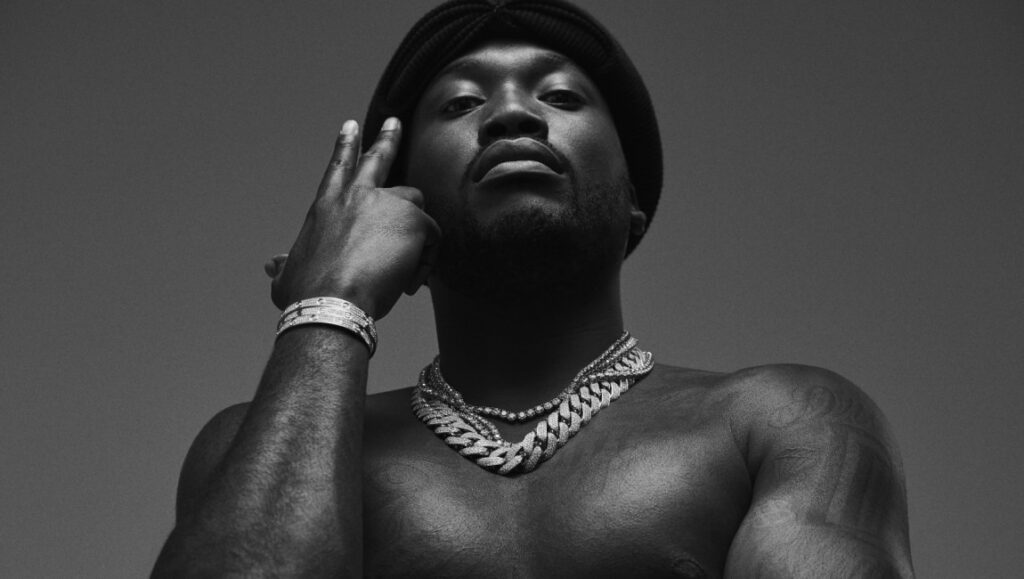Expensive Pain proves that absent external conflict motivating him, Meek Mill is only able to operate on unappealing auto-pilot.
Meek Mill owes his entire career to fortunate circumstances: as in, he regularly talks a big game online about how he’s one of the “top dogs” of the industry, but it’s difficult to accurately pinpoint exactly where he currently stands within hip-hop culture. His previous studio releases would usually drop right as he was embroiled in some personal hardship, junctures where he could conceivably market himself as an underdog figure — most notably, the major L’s he took from conflicts involving Drake and this country’s racist judicial system. But his latest album, Expensive Pain, arrives with little media fanfare. This time, there’s no real-world context into which one can place Meek’s raps; the resolve he vigorously displayed through assaultive technique, which once worked in his favor based on surrounding situations, now just sounds like he’s going through the motions. He’s now five albums into his lackluster discography, with little differentiation between past releases other than the size of the guest list. As it stands, it often seems as if Meek himself has lost sight of his own narrative, which is a tough position for a rapper of his standing to be placed in: he works best when pushed into corners, when he’s spitting his ass off about the Rollies on his wrist like they’re the last words he’ll ever utter. He’s talented — but only within the right conditions, in short, tight bursts.
But even that aspect of his art seems to be on auto-pilot here: “Intro (Hate on Me)” — which utilizes a obvious, sped-up sample of Nas’ “Hate Me Now” — has the usual Meek Milly stunts and preoccupations that can be heard on his last few boisterous album intros, the only difference being that the fifth time through, they’ve lost their charm. Still, those tracks at least sound like they’ve been assembled with Meek’s sensibilities in mind, unlike the many others that repeatedly prove how limited his artistic range is. He’s a follower, not a leader; when left to his own devices, he’ll gladly co-sign any production style that will guarantee some playlisting. There’s a certain amorphous quality to the way Meek maneuvers through such sonically diverse terrain — undoubtedly a key component to his professional longevity — which makes him something like a jack of all trades and a master of none. But the harder Meek tries to please everyone, the more faceless his music becomes. He’ll record a verse for a piano-heavy track that sounds exactly like five different Lil Durk songs (“On My Soul”) and then shamelessly book him as a guest feature on the very next single. Or he’ll try to sound like a nice guy (“Ride for You”) on an album where the most mature thematic throughline involves distressing over day-one homies trying to fuck his “bitch.” His collab with Giggs is forced and unneeded but could lead to some international cross-over; so thus, like several other throw-away titles here with big names attached (Moneybagg Yo on “Hot,” A$AP Ferg on “Me (FMW)”), it remains. In all of these regards, Expensive Pain serves as a testament to the aforementioned circumstances of one Robert Rihmeek Williams: without external conflict motivating him, he’s unable to meet even the most basic of standards.
Published as part of Album Roundup — October 2021 | Part 2.


Comments are closed.